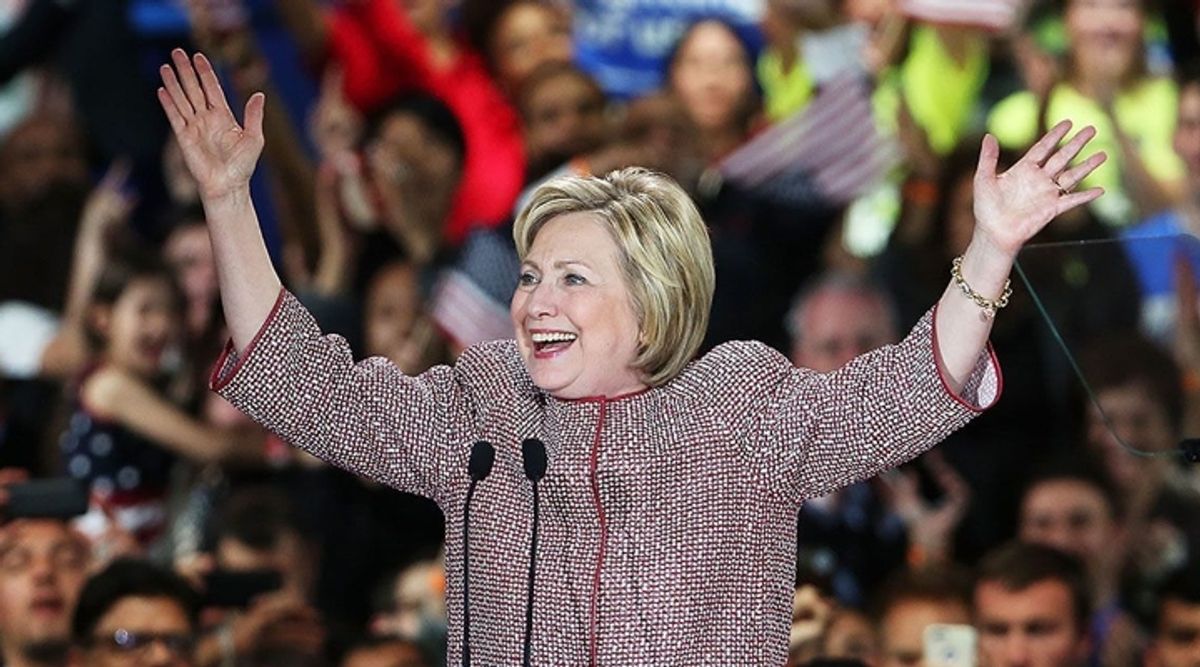The Federal Bureau of Investigation is recommending that no charges be brought against presidential candidate Hillary Clinton for her use of a personal e-mail account and server as Secretary of State.
FBI Director James Comey confirmed the Bureau's recommendation on 5 July 2016, three days after Clinton met with investigators in a three-hour meeting, the New York Times reported:
Mr. Comey said that “no reasonable prosecutor” would bring a case against Mrs. Clinton for her handling of classified information on her private server. But he said Mrs. Clinton and her staff were “extremely careless” in their use of email.
The F.B.I.’s recommendation to the Justice Department will have an enormous impact on the presidential election.
Attorney General Loretta Lynch said that she would accept whatever recommendation she received from the F.B.I.
The statement by Mr. Comey concluded an investigation that began a year ago when the inspector general for the intelligence agencies told the Justice Department that he had found classified information among a small sampling of emails Mrs. Clinton had sent and received.
On 5 July 2016, Comey released a statement saying that the FBI had found no clear evidence that Secretary Clinton intended to violate any laws. However, he castigated Clinton and her colleagues for being "extremely careless":
For example, seven e-mail chains concern matters that were classified at the Top Secret/Special Access Program level when they were sent and received. These chains involved Secretary Clinton both sending e-mails about those matters and receiving e-mails from others about the same matters. There is evidence to support a conclusion that any reasonable person in Secretary Clinton’s position, or in the position of those government employees with whom she was corresponding about these matters, should have known that an unclassified system was no place for that conversation. In addition to this highly sensitive information, we also found information that was properly classified as Secret by the U.S. Intelligence Community at the time it was discussed on e-mail (that is, excluding the later “up-classified” e-mails).
None of these e-mails should have been on any kind of unclassified system, but their presence is especially concerning because all of these e-mails were housed on unclassified personal servers not even supported by full-time security staff, like those found at Departments and Agencies of the U.S. Government—or even with a commercial service like Gmail.
Separately, it is important to say something about the marking of classified information. Only a very small number of the e-mails containing classified information bore markings indicating the presence of classified information. But even if information is not marked “classified” in an e-mail, participants who know or should know that the subject matter is classified are still obligated to protect it.
While not the focus of our investigation, we also developed evidence that the security culture of the State Department in general, and with respect to use of unclassified e-mail systems in particular, was generally lacking in the kind of care for classified information found elsewhere in the government.
What came to be known as the Clinton e-mail scandal followed extensive attempts to investigate the 2012 Benghazi attacks, during which four Americans were killed. In the course of hearings and related questioning, Clinton's e-mail handling procedures came to light.
